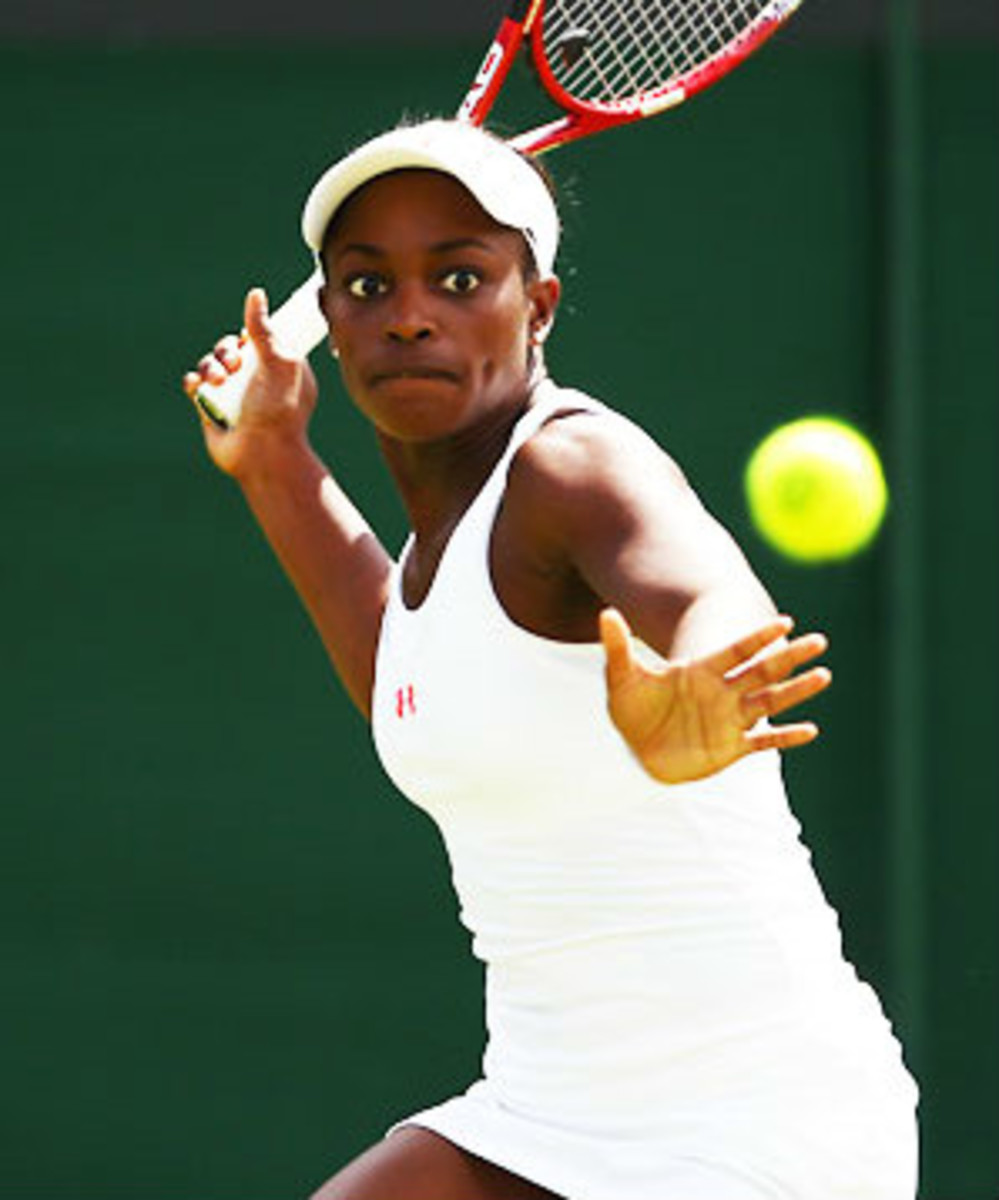Rising powerhouse Germany halts U.S. hopefuls Stephens, McHale
Sabine Lisicki said she didn't see a point of Rafael Nadal's stunning loss to Lukas Rosol the previous night because she was engrossed in Euro '12 soccer: the end of Germany, as it turned out, in a 2-1 loss to Italy. She awoke a bit depressed, but left Court 3 with a vibrant smile after defeating Stephens, 7-6 (5), 1-6, 6-2.
McHale was up against Angelique Kerber, who has earned Germany's highest ranking among women players (No. 8) since the days of Steffi Graf. There were some long, engaging points and moments of intrigue, but Kerber prevailed 6-2, 6-3 in difficult, windy conditions.
The 19-year-old Stephens learned a few things about herself, and the tour, this day. Lisicki is one of the game's big hitters, with a huge first serve and the world No. 15 ranking. Once disparaging of grass courts due to her allergies, she overcame that obstacle to reach the Wimbledon semifinals last year, defeating Li Na and Marion Bartoli before losing to Maria Sharapova.
Stephens, to her satisfaction, found that she had no problem matching the German's groundstrokes. "I definitely wasn't overpowered at all," she said after the match. "I just came up a little bit short. Made too many mistakes in that first set."
Completely uninhibited as she boldly hit out from both wings, Stephens raced to a 5-2 lead in the tiebreaker, only to lose the next five points. The worst of it: sailing a backhand long to give Lisicki a 6-5 lead, then going long with a second-serve forehand return to end the set. Bent over in frustration, Stephens appeared ready to slam her racket into the turf until she held back at the last moment (it was more of a tap).
"Those were ridiculous errors," she said. "You just can't afford to play loose points like that. What was I thinking at that point? Gotta fight. If you want to win a match like this, then give it all you got."
The second set was a mismatch, to the point where Lisicki appeared to have lost all sense of command, but in the crucial fourth game of the third set, she unleashed a forehand winner from five feet behind the baseline to break serve and go up 3-1. It was the start of a landslide, Lisicki banking on her big-match experience to hold the edge.
"Looking back, I don't think I was aggressive enough," said Stephens, decidedly downcast before a small group of American reporters before brightening her mood. "I've had a pretty good year. I was so disappointed not to make the Olympics, but this tournament will probably get my ranking into the 50s, and now I'm going home. There's a lot to look forward to."
McHale, ranked 32nd and safely into the Olympic singles with Varvara Lepcheko and the Williams sisters, was hardly fazed by Kerber's service games but came up discouragingly short -- 0-for-10 on break-point chances -- in the first set. At 3-all in the second set, Kerber showed the resolve that has driven her to a 42-11 record this year (most wins on the women's tour), including victories over Maria Sharapova and Victoria Azarenka. She broke McHale for a 4-3 lead and never looked back.
So ends the European swing for Stephens and McHale, pegged by most as the future of the American women's game and, as it turns out, greatly admired by Serena Williams. "They're great people, great kids going into their adult life," Serena said this week. "They're really fun, and both of them can really play. I just have a blast with those girls, so it's cool. You'll be hearing a lot from them."





